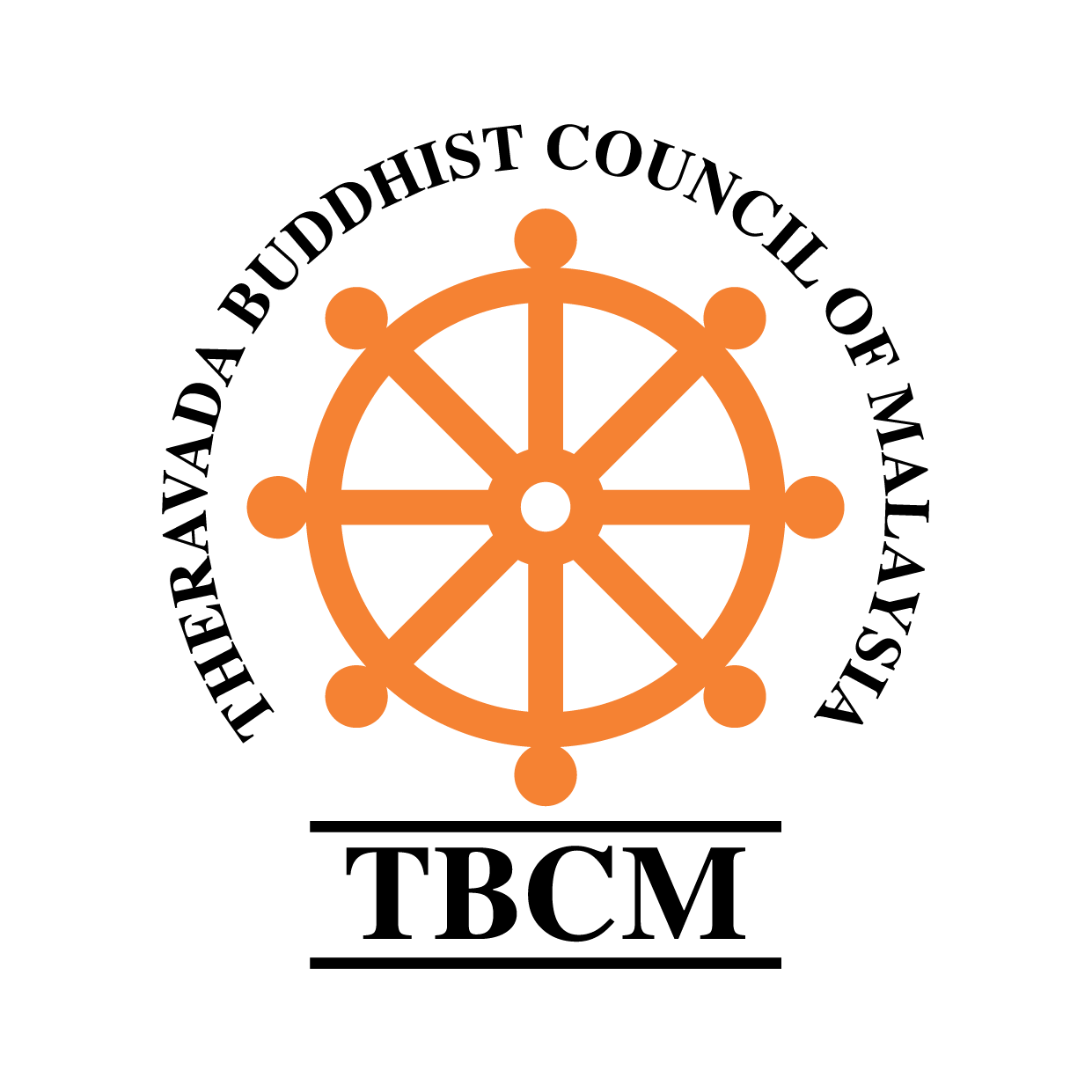Hungry Shades Outside the Walls
Tirokuṭṭasutta Khuddakapatha 7
This sutta is about departed relatives who return to their homes only to find that because of their past bad kamma, they cannot gain access into the house as their relatives have not remembered them.
The living must have the heart to remember the departed and make offerings to them. If they see this, they rejoice and in turn offer their good wishes for their relatives’ well-being.
In the sutta, the Buddha uses a simile to describe the offerings. He said that just as the river water flows downstream into the sea, so these offerings that you make reach the departed. This is the meaning of the verse Yatha varivaha pur, that we used to recite every time before we transfer merits.
Tirokutta Sutta translated from the Pali by Ajahn Thanissaro Bhikkhu
Outside the walls they stand, & at crossroads.
At door posts they stand, returning to their old homes.
But when a meal with plentiful food & drink is served, no one remembers them:
Such is the kamma of living beings.
Thus those who feel sympathy for their dead relatives give timely donations of proper food & drink
— exquisite, clean —
[thinking:] "May this be for our relatives.
May our relatives be happy!"
And those who have gathered there, the assembled shades of the relatives, with appreciation give their blessing for the plentiful food & drink:
"May our relatives live long because of whom we have gained [this gift]. We have been honored, and the donors are not without reward!"
For there [in their realm] there's no farming, no herding of cattle, no commerce, no trading with money.
They live on what is given here, hungry shades whose time here is done.
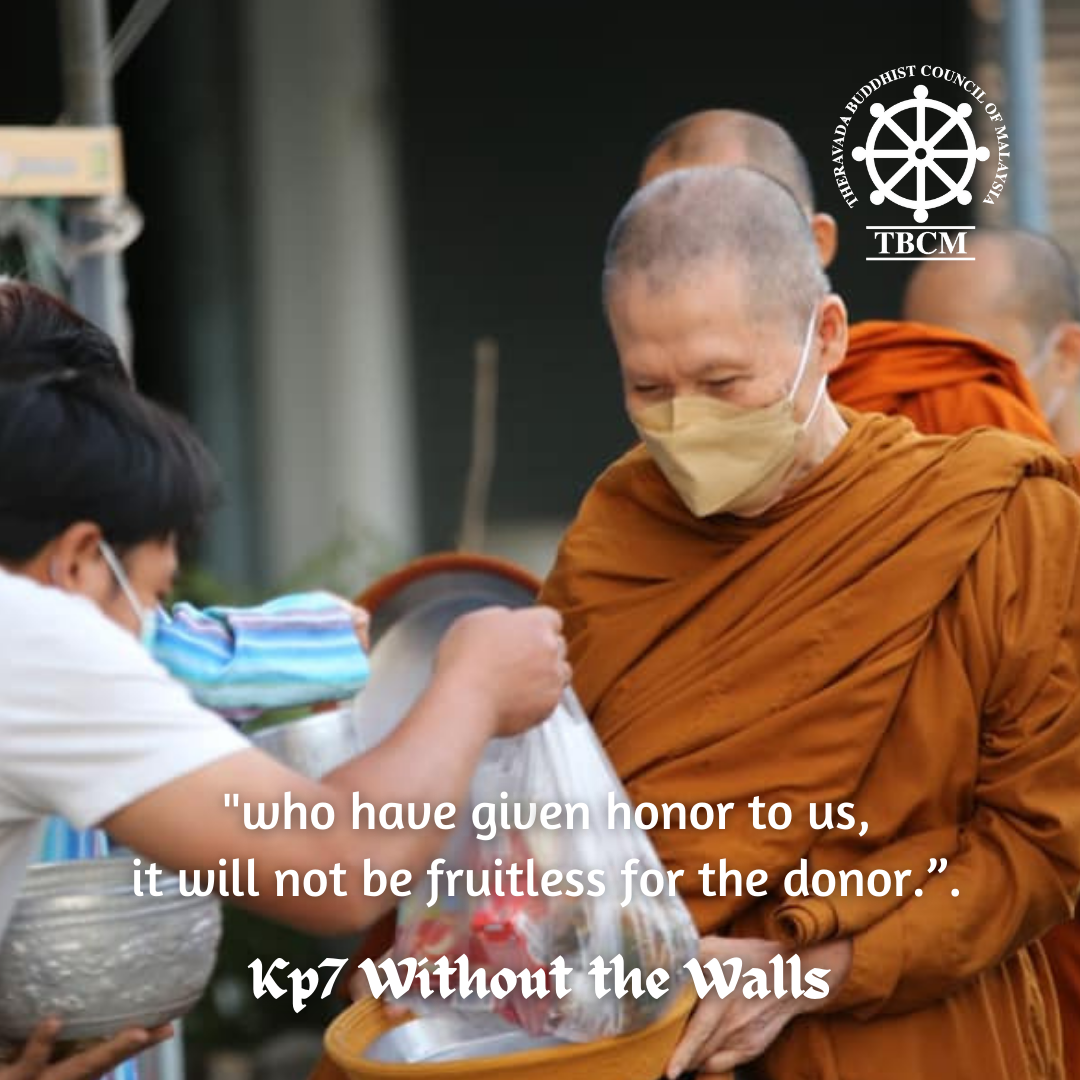
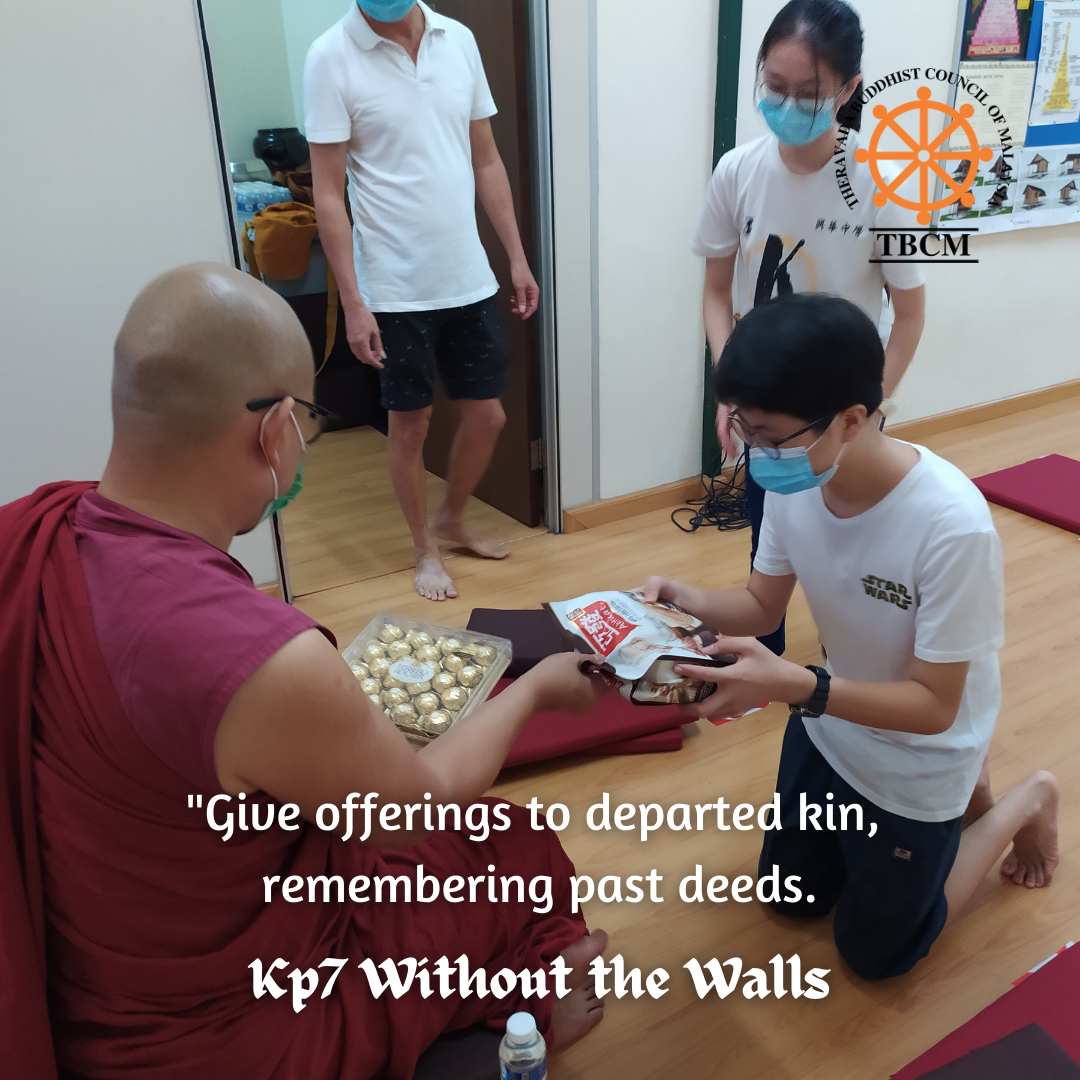
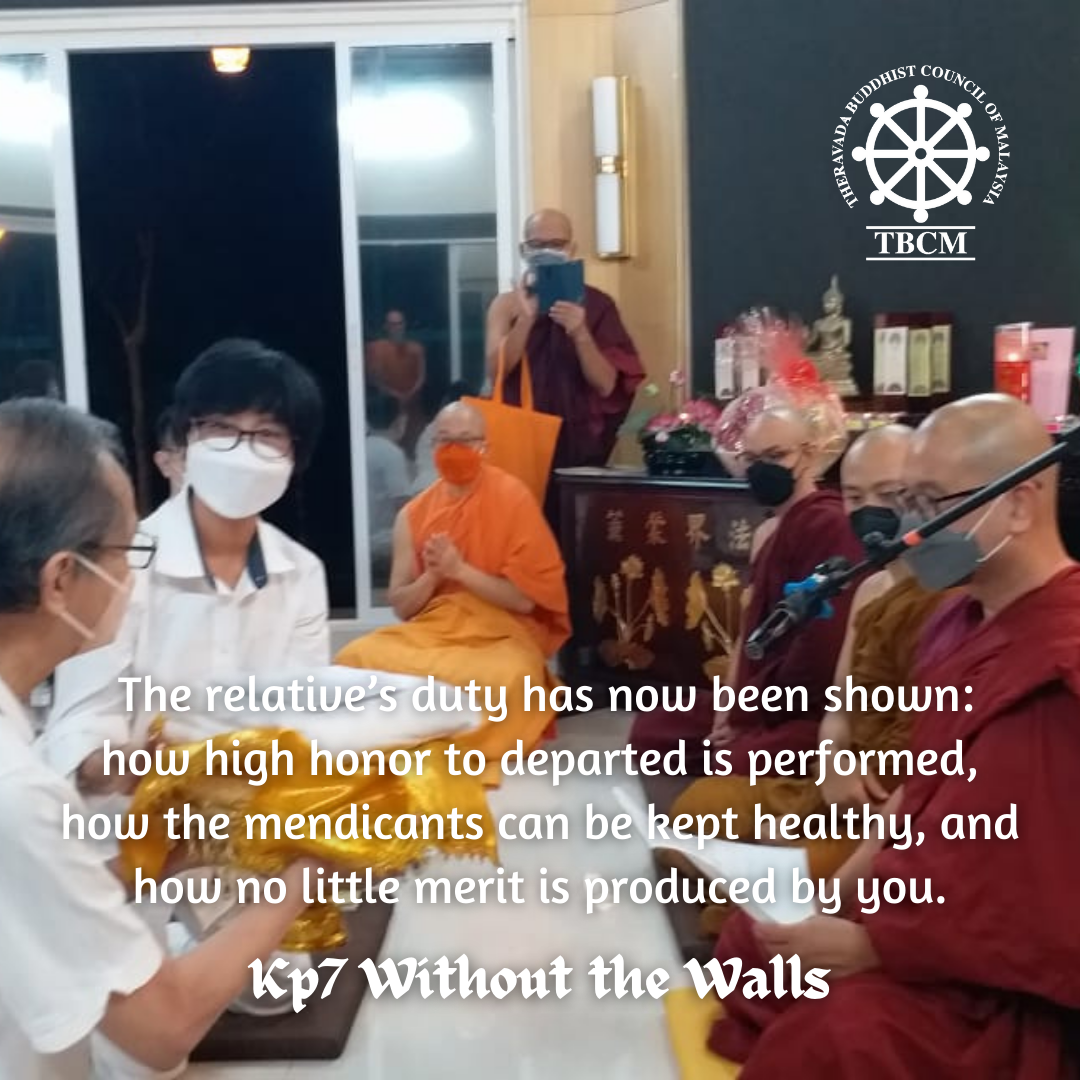
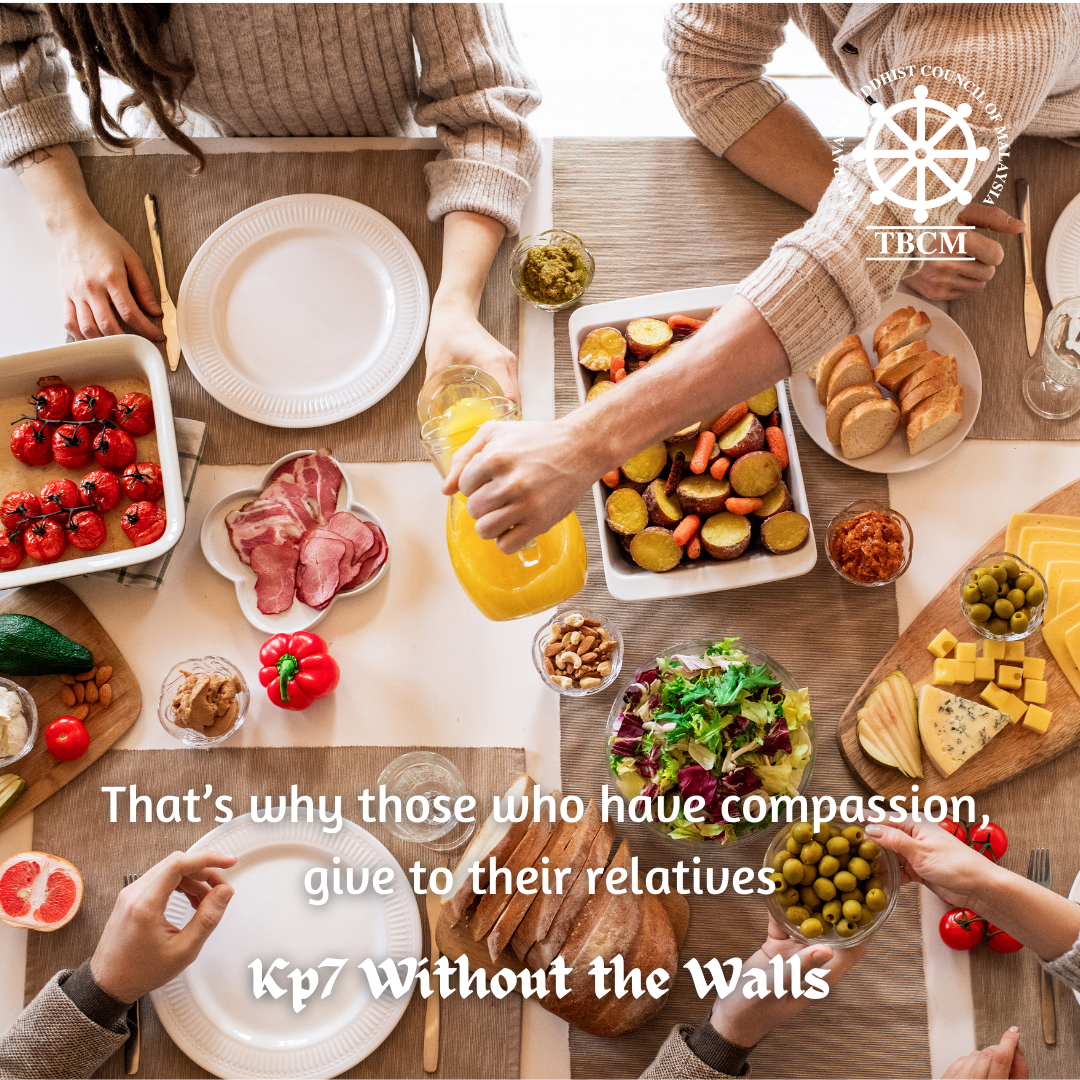
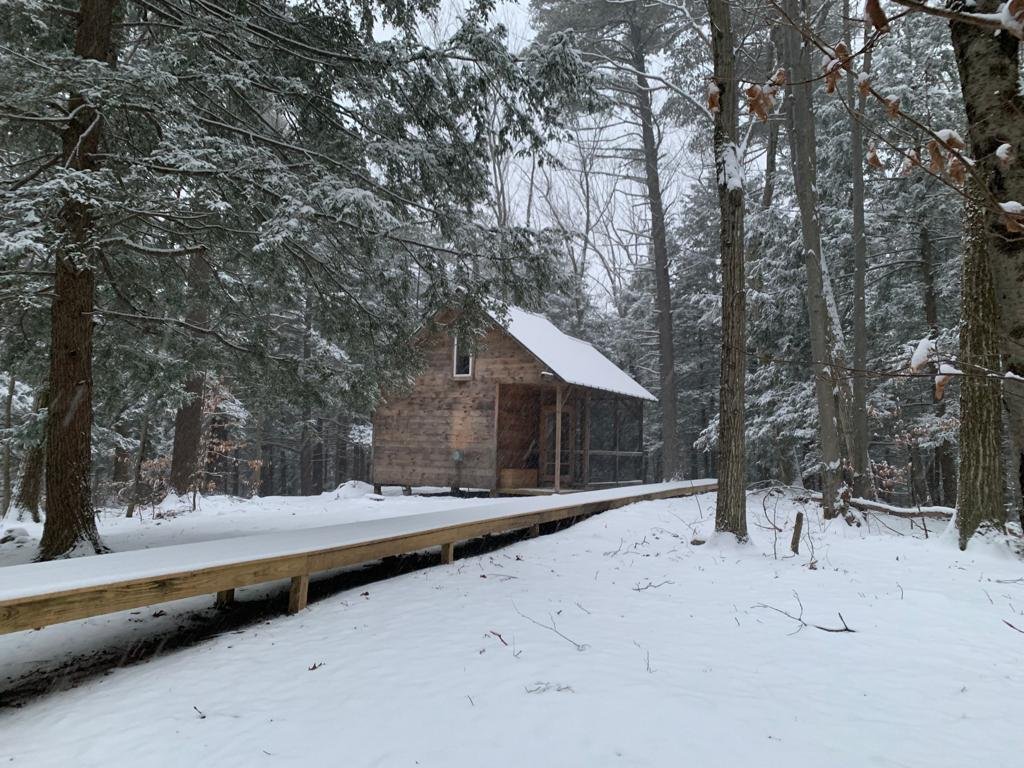
As water raining on a hill flows down to the valley, even so does what is given here benefit the dead.
As rivers full of water fill the ocean full, even so does what is given here benefit the dead.
"He gave to me, she acted on my behalf, they were my relatives, companions, friends":
Offerings should be given for the dead when one reflects thus on things done in the past.
For no weeping, no sorrowing, no other lamentation benefits the dead whose relatives persist in that way.
But when this offering is given, well-placed in the Sangha, it works for their long-term benefit and they profit immediately.
In this way the proper duty to relatives has been shown, great honor has been done to the dead, and monks have been given strength:
The merit you've acquired isn't small.
In Pali Khuddakapāṭha 7. Tirokuṭṭasutta
Tirokuṭṭesu tiṭṭhanti, sandhisiṅghāṭakesu ca;
Dvārabāhāsu tiṭṭhanti, āgantvāna sakaṁ gharaṁ.
Pahūte annapānamhi, khajjabhojje upaṭṭhite;
Na tesaṁ koci sarati, sattānaṁ kammapaccayā.
Evaṁ dadanti ñātīnaṁ, ye honti anukampakā;
Suciṁ paṇītaṁ kālena, kappiyaṁ pānabhojanaṁ.
Idaṁ vo ñātīnaṁ hotu, sukhitā hontu ñātayo;
Te ca tattha samāgantvā, ñātipetā samāgatā.
Pahūte annapānamhi, sakkaccaṁ anumodare;
Ciraṁ jīvantu no ñātī, yesaṁ hetu labhāmase.
Amhākañca katā pūjā, dāyakā ca anipphalā;
Na hi tattha kasī atthi, gorakkhettha na vijjati.
Vaṇijjā tādisī natthi, hiraññena kayākayaṁ;
Ito dinnena yāpenti, petā kālagatā tahiṁ.
Unname udakaṁ vuṭṭhaṁ, yathā ninnaṁ pavattati;
Evamevaṁ ito dinnaṁ, petānaṁ upakappati.
Yathā vārivahā pūrā, paripūrenti sāgaraṁ;
Evamevaṁ ito dinnaṁ, petānaṁ upakappati.
Adāsi me akāsi me, ñāti mittā sakhā ca me;
Petānaṁ dakkhiṇaṁ dajjā, pubbe katamanussaraṁ.
Na hi ruṇṇaṁ vā soko vā, yā caññā paridevanā;
Na taṁ petānamatthāya, evaṁ tiṭṭhanti ñātayo.
Ayañca kho dakkhiṇā dinnā, saṅghamhi suppatiṭṭhitā;
Dīgharattaṁ hitāyassa, ṭhānaso upakappati.
So ñātidhammo ca ayaṁ nidassito,
Petāna pūjā ca katā uḷārā;
Balañca bhikkhūnamanuppadinnaṁ,
Tumhehi puññaṁ pasutaṁ anappakanti.
Tirokuṭṭasuttaṁ.
